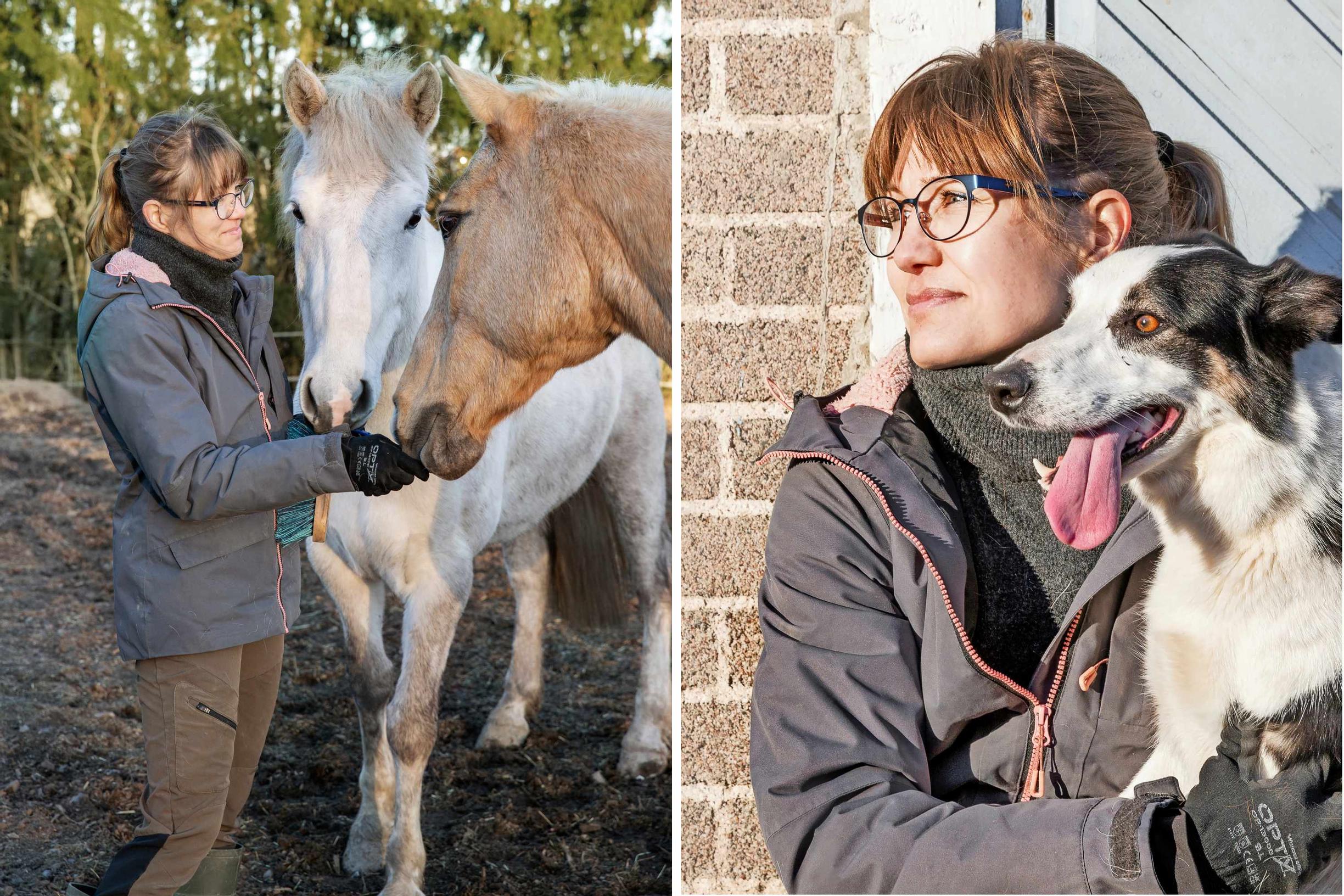
A riding accident put veterinarian Taija in the hospital for weeks: “I wasn’t even given hope that I could recover”
A riding accident turned 46-year-old Taija Saloniemi’s life upside down. Rehabilitation unexpectedly became this mother of five’s biggest challenge. In the end, Taija finally began to recover once she was given hope—and permission to run.
The day before, 46-year-old Taija Saloniemi and her 14-year-old son Olavi were seated in the audience at Helsinki’s Messukeskus, watching the galloping horses on the Cavalluna show’s stage. The elegantly dressed riders blended seamlessly with the radiant horses’ movements following the rhythm of the music.
The next morning at home in Lohja, Finland, the entire family gathered for Mother’s Day breakfast. In addition to Taija, the table included her spouse Jussi, 49, as well as their children Olavi, Ilari, 16, Severi, 11, Siiri, 9, and Einari, 8.
However, Taija remembers nothing about that breakfast. Later that same day, a riding accident took away her memory—and nearly her life.
“In the afternoon, Olavi and I went out on a familiar riding trail. I was on a four-year-old Finnhorse called Taikautu. I’d ridden that route dozens of times, but for it Taikautu it was the first time,” Taija says.
Olavi followed on a light brown pony named Talle. After half an hour, they were about six kilometers from home and about to turn back. Neither Taija nor Olavi know exactly what happened next. The horse might have been startled, made a sudden move, lost its footing, and fell. Taija wound up pinned underneath.
Olavi called home, where his father was working in the yard, and then caught Taija’s horse. Jussi and Ilari arrived by car. Around the same time, the ambulance came, and Taija was sedated on the way to Helsinki.
“Back home, it was terrifying at first because there was no guarantee I’d regain consciousness. Everyone was deeply worried. My husband told me that the first night after the accident was the hardest of his life,” Taija says.

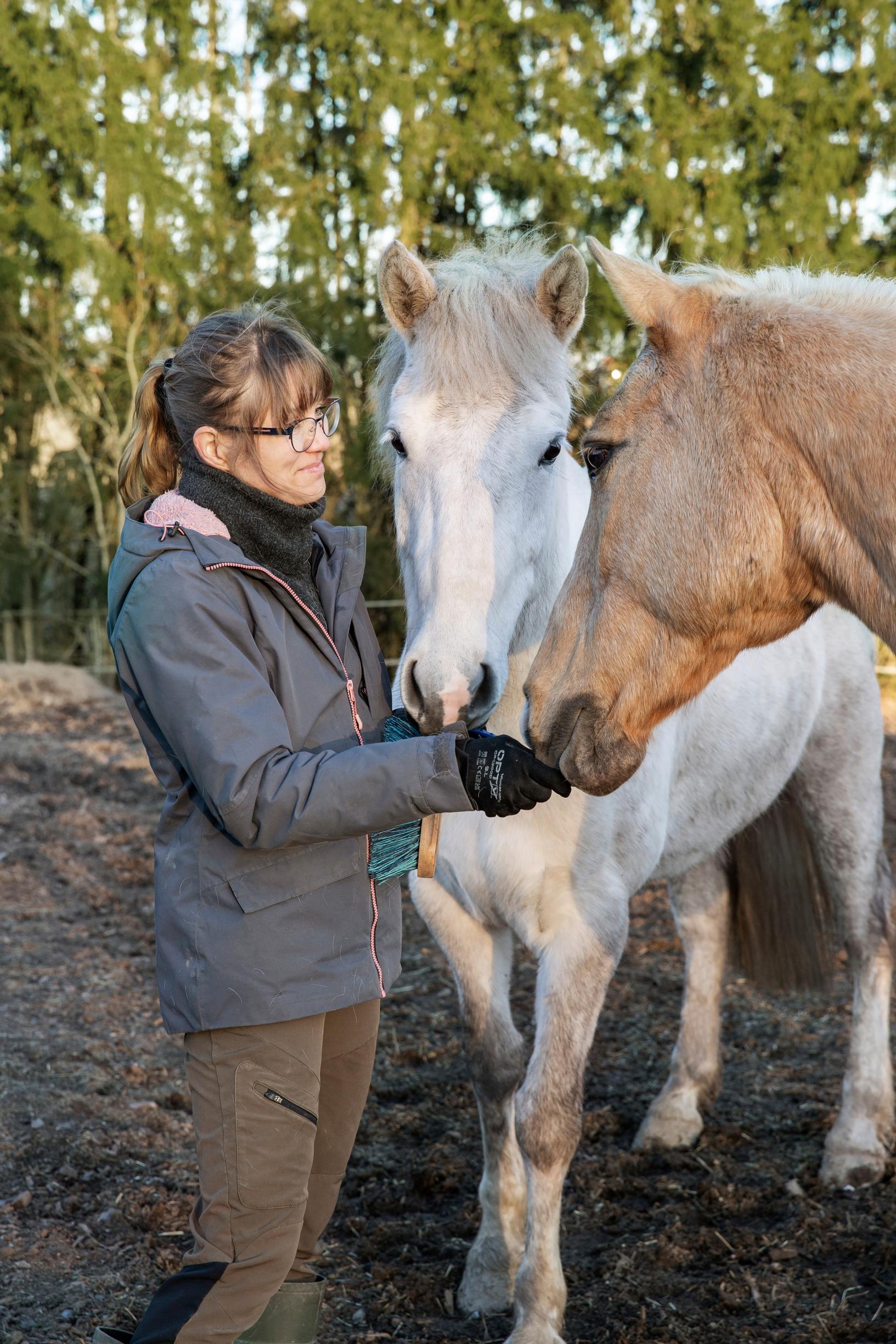
After two weeks, she was allowed to wake up. She had arrived in critical condition at Helsinki’s Meilahti Hospital ICU. Taija had fractures in her skull and neck vertebra, brain bleeding, and multiple fractures in her eye socket. While sedated, her brain had time to heal, and a ventilator supported her bodily functions.
Taija was moved from the ICU to another hospital for observation, then on to the neurology ward in that same hospital for rehabilitation. She has a fleeting memory of the ambulance ride. Her family was allowed to visit the following day.
Right after the accident, everyday tasks like speaking and walking were tough for Taija, but she assumed these were ordinary consequences of what had happened. Recovery would simply take time—she thought that was normal.
During rehabilitation, though, she quickly felt there wasn’t much time or space.
“I felt like the doctors and nurses analyzed everything I did and forgot to see me as a person,” Taija says.
“Back home, everyone was deeply worried. My husband said the first night after the accident was the hardest of his life.”
When Taija asked about her neck pain, the doctor responded with a purely clinical explanation. When she asked another doctor about her neck the following day, she was reminded that she’d already brought it up. That only confirmed her memory was impaired. When she held her aching arm against her side—the arm that had been crushed under the horse—it was noted as a motor-control change from her brain injury.
“I don’t recall anyone asking how I actually felt. If I was happy about improving, the doctors and nurses reminded me of my injuries and said I’d have to learn to live with them. It seemed like no one believed I could really get better.”
Every upcoming test made Taija nervous, and her stress rose without her realizing it. She asked to talk with someone about the accident, her trauma, and her injuries, but didn’t receive that support. After the daily tests, staff would often highlight where she failed or what challenges she still had.
Even though her family visited every day, Taija worried about how they were coping. Friends and close ones formed a support circle to care for the animals, and Taija missed her everyday tasks and being with her family.
“Therapy felt humiliating. I practiced specifically for the tests by doing multiplication tables and crosswords. When I couldn’t sleep at night, I’d practice even more. Now I think doing chores at home would have been better rehabilitation—I could have recovered with less stress.”

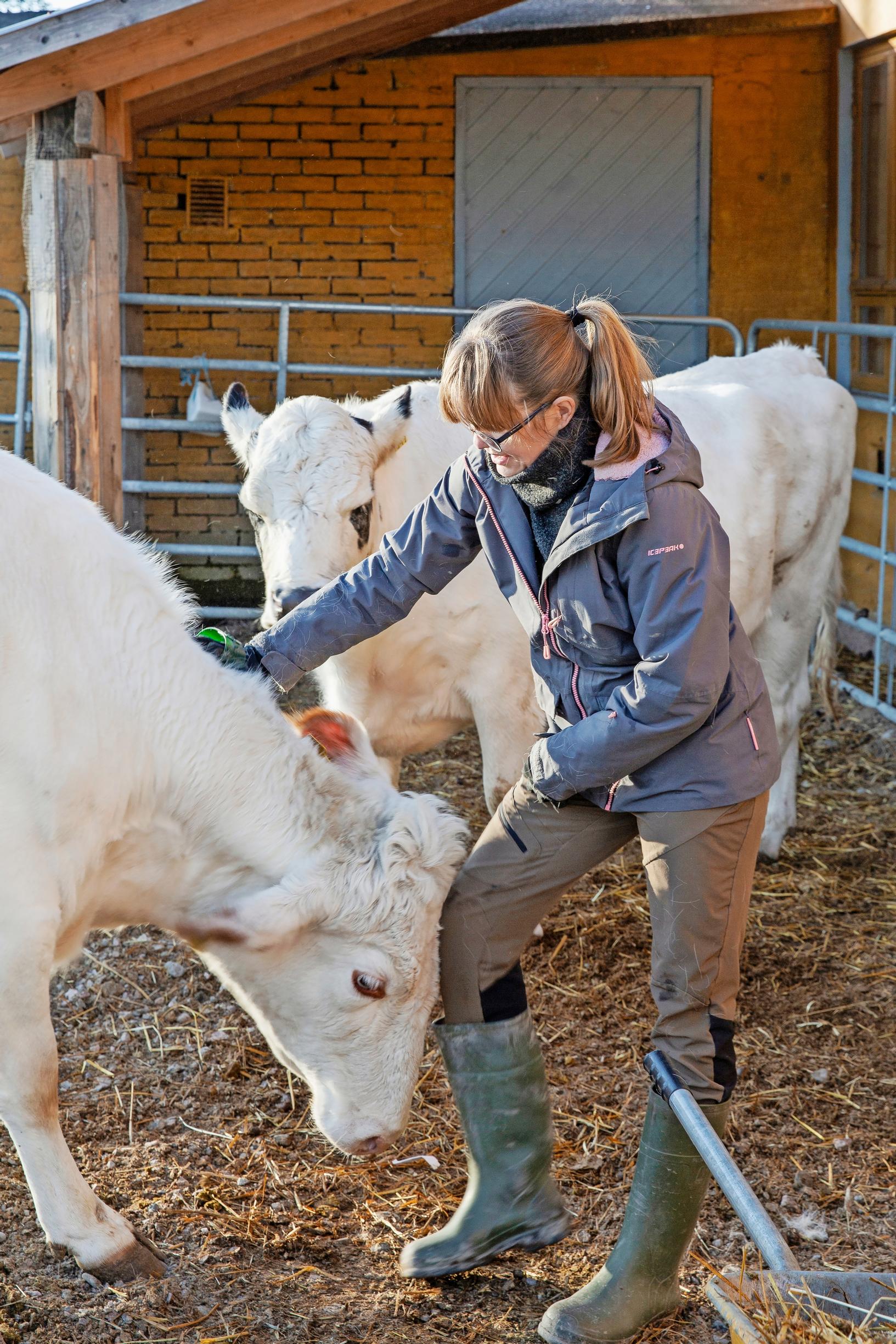
Coming home felt amazingly freeing for Taija at first.
“I was just so happy to get out of rehab. At home, the kids were always close or snuggled up to me, asking how I felt.”
She was supposed to continue rehabilitation, but her condition worsened. The pressure to perform and the stress brought on by the trauma and rehabilitation intensified.
Taija’s anxiety soon became so severe that she feared she might die. She couldn’t eat or sleep. Eventually, she lay on the living room couch, trying to get even a moment of sleep with the help of sleeping pills.
“Luckily, my husband helped me get treatment because I couldn’t have done it on my own,” Taija says.
“Now I understand why some people, in their desperation, end their lives. It took four visits to the doctor before I was admitted to a psychiatric hospital. Getting care there was the best thing that happened in my entire recovery.”
At this new facility, all rehabilitation therapy stopped. For the first time since the accident, there wasn't someone constantly assessing or analyzing Taija’s every move. She had her own room and set her own daily routine.
“I was surprised that all expectations just disappeared. I didn’t have to prove I was good or capable. I could just be and recover at my own pace,” Taija explains.
“I wasn’t treated merely as a brain-injury patient but as a person. I could sleep, talk to my nurse and doctor, and receive medication for my physical pain.”

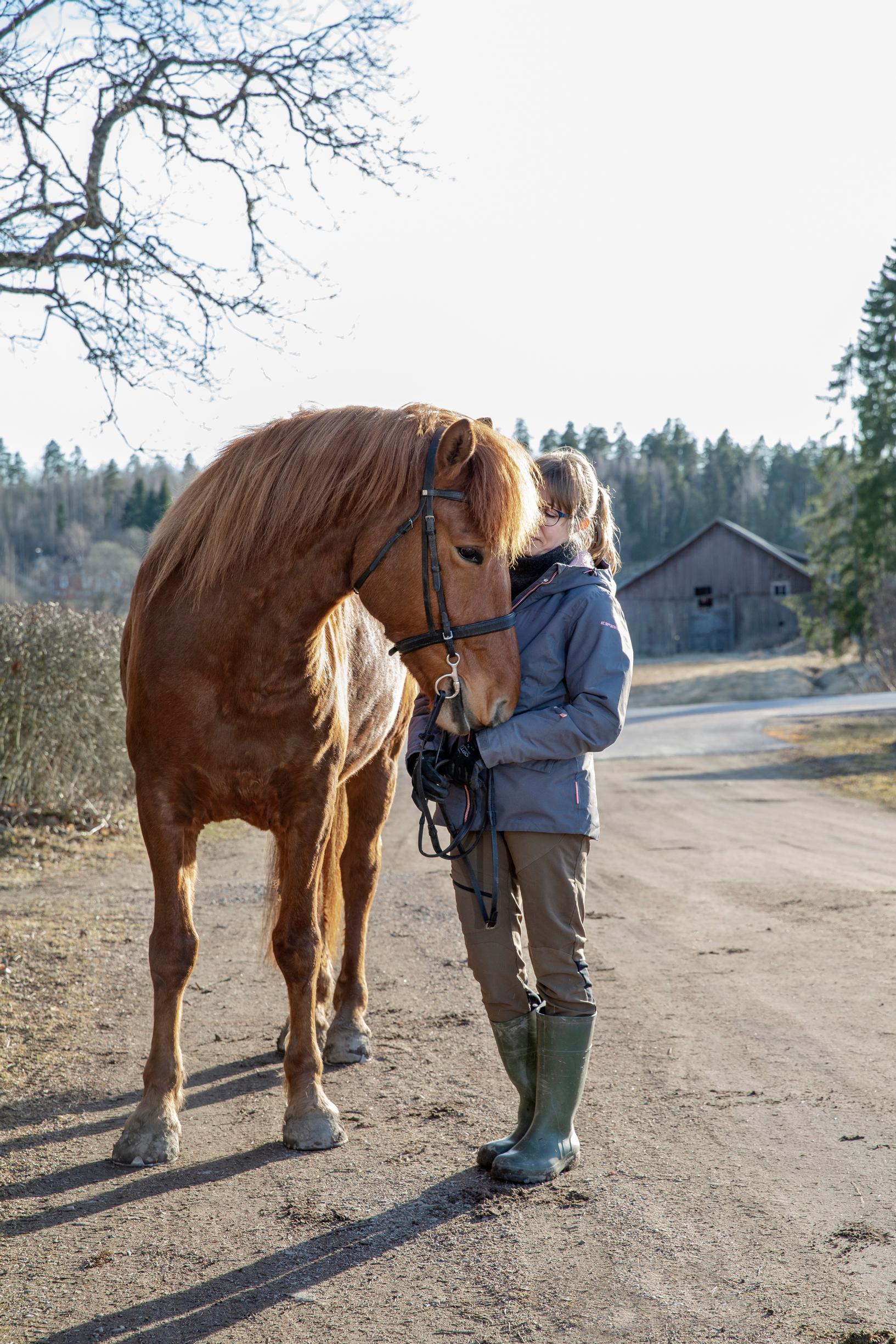
In those first days, Taija rested. A week later, she was allowed to run. From the ridge next to the hospital, a wooded exercise trail stretched away, which she ran in the warmth of late summer.
"I ran long distances in the forest every day. Right after my first jog, I realized how good it felt. Afterward, I was tired and hungry."
As Taija improved, she ate more, slept better, and gradually felt less stressed. By late summer, she finally came home after 11 weeks in the hospital, four of them in the psychiatric ward.

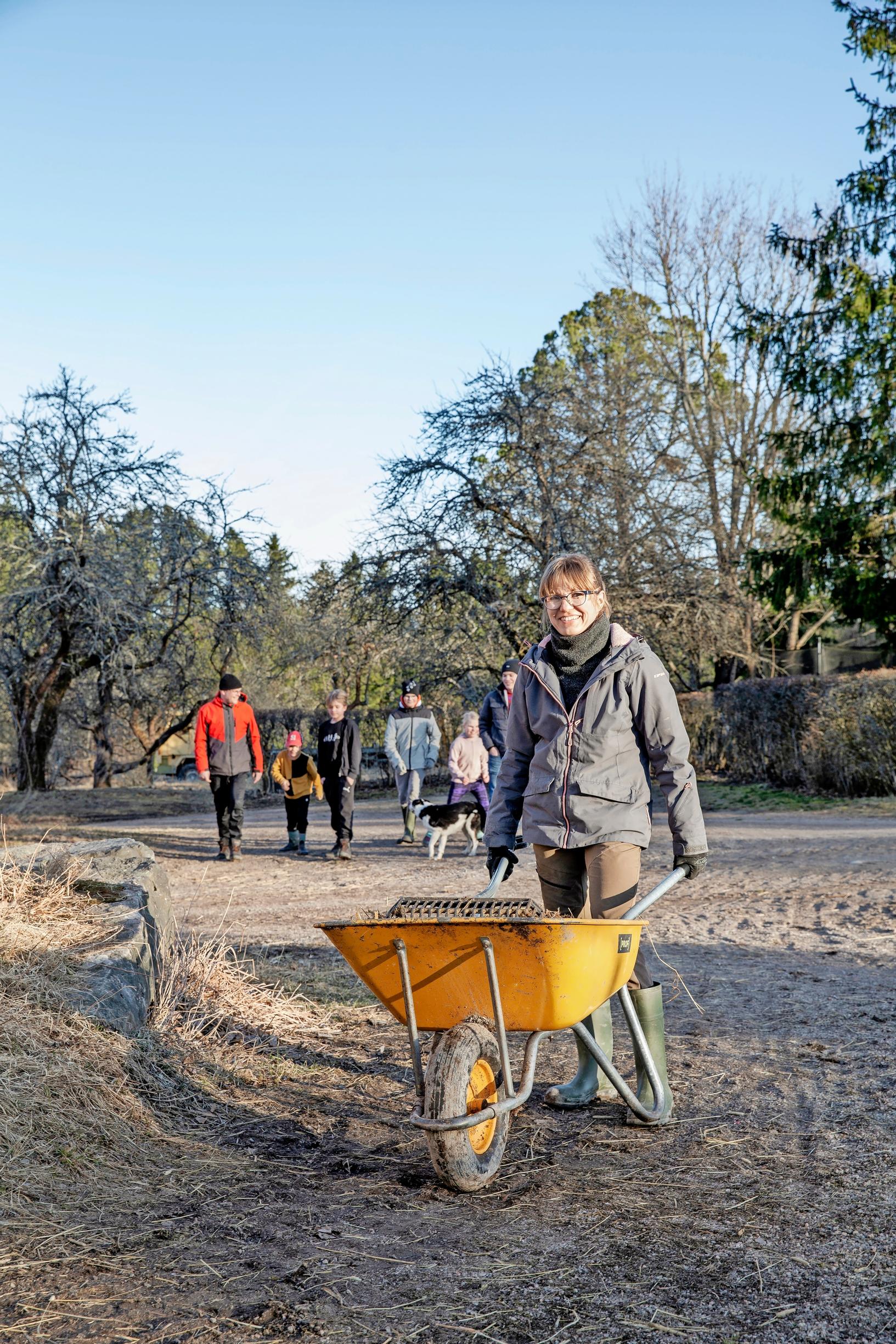
That second homecoming was smoother than the first. Taija finally got the kind of care that felt right to her.
"I've always considered myself tenacious and resilient, and the accident didn't change that. Having a good care contact gave me confidence to keep recovering at home."
For Taija, the best rehab was diving right into farm work. She took down pasture fencing and cleaned stalls. She also loved time with her children, going on forest walks, and sitting outside to watch their riding lessons and soccer practices. And of course, there were horses.
Last September, Taija still wasn't cleared to ride, so she decided to go for a carriage ride instead, and hitched up the experienced horse Taikapöly to a carriage. That first ride in nearly four months felt wonderful.
"The accident didn't change my relationship with animals or horses in any way. It was a chain of coincidences and terrible luck. I'd known Taikautu since birth—I bred her. I wouldn't have taken her to the forest if I had doubted her ability," Taija says.
Eventually, Taija decided for herself that she was ready to ride again once the doctor cleared her to drive. Naturally, she returned to the exact place where the accident had taken place.
"The accident didn't change my relationship with animals. It was a chain of coincidences and terrible luck."
In front of a red farmhouse, a black-and-white herding dog darts across the yard. Taija has just led four horses to a nearby paddock and is shoveling manure mixed with bedding into a wheelbarrow. Now, a year after the accident, she's back to the same productive self.
Taija works as a veterinarian and spends much of her day with animals. In addition to dogs, her family has Northern Finncattle and Finnhorses.
"Often when I'm shoveling manure, I feel grateful that I can even do these ordinary chores."
Taija was able to go back to her veterinary job in under six months. Before that, she had to pass a three-hour neuropsychological test on memory, attention, concentration, perception, behavior, and emotional regulation.
She was nervous about returning to work, but on her first day there were so many patients that her anxiety was instantly forgotten.
"Work pulled me in right away. Nobody was worried about me, checking my every move, or supervising me. It was so liberating. And it felt wonderful to realize my coworkers and clients really had missed me."

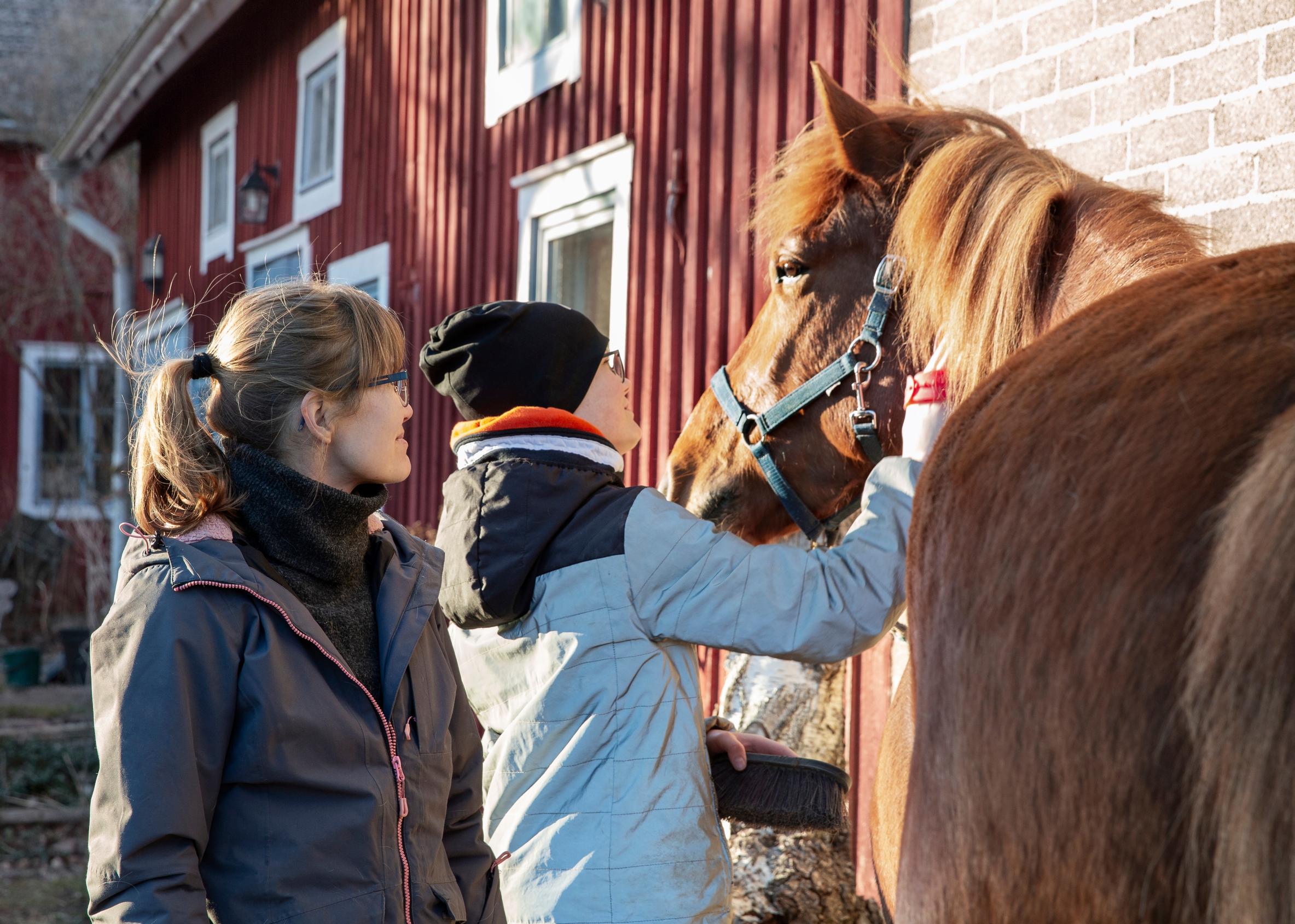
In her new everyday life, Taija focuses more on the present and does things that give her joy and energy. To balance out a busy schedule, she especially enjoys time with her family and with their dogs, horses, and cattle.
"My days are filled with family life and work, but I've carved out more space for myself and time to ride. Over the past few years, I wasn’t able to ride as much as I wanted."
Looking ahead, Taija hopes to raise Finnhorse foals, run a marathon, and get back into competitive riding. After all she's been through, she feels more sensitive—and more determined. Still, the stress from rehabilitation has left its mark.
"I realize I spend more time than before wondering what people think of me. That bothers me, but I also believe it will fade in time."
The setbacks Taija faced after the accident made her learn to question authority. She says she now trusts herself and her own experiences more.
"In rehab, they thought my recovery had to follow a certain mold. I wasn't even given the option that I could genuinely heal. It felt like they took away my hope, the most important thing a person can have," she says.
"But no two people are the same."


